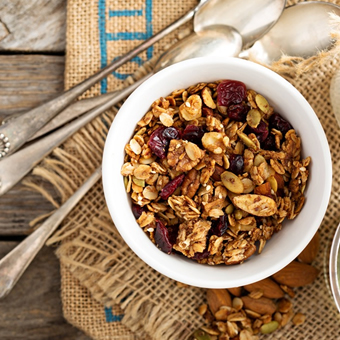In today's diligent customer landscape, the need for morally sourced and also lasting products has actually risen. Private label food manufacturers have emerged as trailblazers in this domain, usually working together with agreement food manufacturers to spearhead sustainability and accountable sourcing initiatives. With an undaunted commitment to ecological principles, exclusive label brands have made it their objective to deliver sustainable, high-grade alternatives to consumers.
Private Label Food Manufacturers
In recent years, private label food manufacturers, likewise referred to as own brand names or store brand names, have observed an impressive rise in appeal. These manufacturers generate items offered under the logo design of private label cheese a retailer, grocer, or exclusive entity. What collections private-label items apart is their capacity to offer affordable prices without jeopardizing on quality.
Agreement Food Manufacturers
Many private-label food suppliers sign up with pressures with contract producers to create their product lines. Agreement food manufacturers are professionals in producing food for private labels. This critical collaboration allows personal label firms to use the proficiency, sources, as well as specialized food production centers of their partners.
Sustainability at the Core
Private label food manufacturers use various strategies to boost sustainability within their supply networks:
Ethical Sourcing:
Personal label firms are significantly dedicated to sourcing components according to honest and reasonable trade standards. This entails guaranteeing that producers as well as employees of basic materials, such as coffee beans, seasonings, or cocoa, receive reasonable compensation for their efforts.
Neighborhood Sourcing:
Focusing on regional sourcing of components is another trademark of private-label food makers. This not only minimizes the carbon footprint associated with transport yet also supports neighborhood farmers and also neighborhoods.
Organic Contents:
With the health food market on the rise, private labels are reacting by integrating organic components right into their product lines. Organic farming methods focus on soil health while shunning artificial chemicals as well as plant foods.
Lasting Fish and shellfish:
Private Label Food Manufacturers are persistent in guaranteeing that the seafood they utilize is sustainably gathered, adhering to standards established by organizations like the Marine Stewardship Council, which advertises responsible fishing.
Reduced Food Waste:
Exclusive label business are proactively dealing with lowering food waste by carrying out effective manufacturing processes and establishing products with longer service life. Some brand names are also partnering with food rescue organizations to donate surplus food to those in requirement.
Eco-Friendly Packaging as well as Initiatives
Sustainability efforts by private-label food manufacturers prolong past sourcing components to incorporate product packaging as well as eco-friendly initiatives:
Sustainable Product packaging:
Personal label brand names have actually welcomed environment-friendly packaging choices, consisting of recyclable, naturally degradable, or compostable materials. Redesigning packaging to minimize excess product and minimize ecological effect is a leading priority.
Waste Decrease:
To reduce waste, private-label food manufacturers maximize product dimensions, decrease excess packaging, and check out ingenious packaging solutions. Some brand names also encourage consumers to take part in reusing programs.
Power Effectiveness:
Several private label makers are investing in even more energy-efficient production plants, lowering water use, and also adopting renewable resource resources to further lower their ecological impact.
Carbon Neutral Initiatives:
Some exclusive brand name food manufacturers are taking enthusiastic steps to accomplish carbon neutrality by offsetting their greenhouse gas discharges through reforestation jobs as well as renewable energy credit scores.
Obstacles as well as the Road Ahead
Regardless of the significant strides made in sustainability and also responsible sourcing, private-label food producers deal with difficulties. Stabilizing sustainability with cost-effectiveness can be a fragile act, in some cases calling for compromises on lasting components or the exploration of environment-friendly choices.

Often Asked Questions
Q1: What are private label food manufacturers?
Private label food manufacturers generate products sold under the logo design of a retail store, grocer, or private entity. They use competitively priced items without compromising on high quality.
Q2: Exactly how do private label food manufacturers promote sustainability?
Private label food manufacturers promote sustainability through moral sourcing, regional active ingredient procurement, the use of natural ingredients, lasting seafood methods, and also initiatives to decrease food waste.
Q3: What environment-friendly packaging choices do exclusive label brand names use?
Personal label brand names embrace environmentally friendly product packaging choices such as recyclable, eco-friendly, or compostable products. They also redesign product packaging to minimize excess material and reduce ecological impact.

Stabilizing sustainability with cost-effectiveness is a significant challenge for private label food manufacturers. This may need concessions on lasting components or the exploration of green choices.
Final thought
Private label food manufacturers are at the forefront of the sustainability as well as liable sourcing motion within the food market. Their dedication to moral sourcing, neighborhood purchase, organic components, and also lasting practices, along with their devotion to environment-friendly product packaging as well as waste reduction campaigns, demonstrate their resolution to satisfy the needs of today's eco-conscious consumers.
Regardless of the obstacles they encounter, private label food manufacturers are poised for an encouraging future. With consumers progressively focusing on sustainability, the industry is likely to witness also better partnership with distributors, financial investment in sustainable innovations, and also a commitment to openness. As we move forward, private label food manufacturers will certainly continue to play an essential duty in shaping a much more lasting as well as ethical food landscape for all.